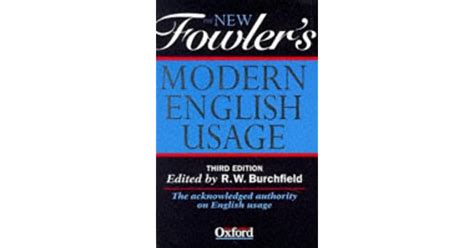Top 13 Quotes & Sayings by Henry Watson Fowler
Explore popular quotes and sayings by an English scientist Henry Watson Fowler.
Last updated on September 17, 2024.
Quotation... A writer expresses himself in words that have been used before because they give his meaning better than he can give it himself, or because they are beautiful or witty, or because he expects them to touch a cord of association in his reader, or because he wishes to show that he is learned and well read. Quotations due to the last motive are invariably ill-advised; the discerning reader detects it and is contemptuous; the undiscerning is perhaps impressed, but even then is at the same time repelled, pretentious quotations being the surest road to tedium.





















